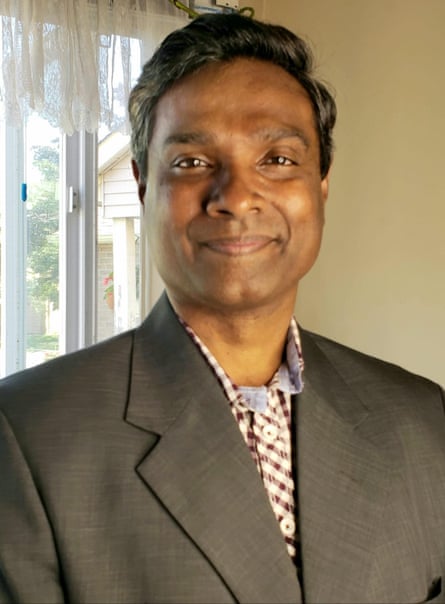[ad_1]
When Vijay Puli arrived in Toronto with his wife and infant daughter, he considered they had finally remaining driving the discrimination, violence and social rejection they had faced in India.
Puli identifies as a Dalit, a member of a team who in India are deemed to be at the really bottom rung, frequently deemed “untouchable”.
In India, the caste program has extended dictated social, religious and economic hierarchies, despite officially remaining abolished in 1950.
And just a month right after moving to Canada in 2006, Puli recognized that caste prejudices persist there far too.
At south Asian functions in Toronto, there had been continual thoughts about which precise village his loved ones came from. Jokes, slurs and stereotypes about Dalits have been rampant, and he would typically hear men and women blame Dalits for crimes in India, together with rape and murder, he explained.
“I came here to escape … but it transpired listed here as well. It’s really distressing,” he said.
Even at his daughter’s Toronto faculty, there was caste-related bullying. A single classmate explained to her they could not be buddies thanks to her caste, reported Puli, who is a social employee and the co-founder of the South Asian Dalit Adivasi Community, which campaigns for Dalit rights.
So Puli felt hopeful when the Toronto district college board (TDSB) – the largest in Canada – lately took a stage toward banning caste-centered discrimination.
Teachers and activists hope the go will signal to lawmakers the want for further plan variations.
But they warned that criticism of the shift showed the expanding affect of Hindu nationalism amid diaspora teams, under the looming influence of India’s primary minister, Narendra Modi.
On 8 March, the TDSB voted to check with the Ontario Human Rights Fee for a framework to address caste-based mostly discrimination, in the initial endeavor to ban it in Canada. The transfer came soon soon after Seattle turned the first US city to ban caste discrimination final thirty day period.

Acknowledging the precise discrimination which Dalit folks come across will ideally motivate other folks to discuss out about the hate they have faced, claimed Meera Estrada, a producer, author and radio host in Toronto who identifies as Dalit Hindu.
“I in no way spoke about my caste openly, for the reason that I understood the folks all-around me, in my social circles had these casteist sights – even while quite a few of them experienced under no circumstances lived a day in India,” she said.
But the TDSB movement was not universally well-liked. The Canadian Group for Hindu Heritage Training made a Improve.org petition in opposition to the go, arguing that there was “little evidence” that caste discrimination exists, and declaring that the actions would raise prejudice in opposition to south Asians.
Chinnaiah Jangam, an affiliate professor at Carleton University in Ottawa who specializes in background and the Dalit people today, stated that groups from dominant castes are lengthy accustomed to relative privileges. Proximity to British colonizers, talking English, wealth and education have afforded quite a few generations results, especially in the west, he explained.
And amid escalating worries more than the increase of Hindu nationalism in India and in other places, governments around the entire world need to have to be a lot more agile in being familiar with problems like discrimination and prejudice within just diaspora communities, reported Jangam.
Before this thirty day period, the Nationwide Council of Canadian Muslims and the Entire world Sikh Firm (WSO) released a report on the impact in Canada of the Rashtriya Swayamsevak Sangh (RSS), a Hindu nationalist paramilitary firm which is carefully connected to Modi’s Bharatiya Janata celebration (BJP).
“Through corporations that have interaction in humanitarian, neighborhood, training and political perform, the RSS has been spreading its ideologies throughout the world, together with into Canada,” the report’s authors wrote.
Jaskaran Sandhu, a board member of the WSO and co-writer of the report, mentioned that policymakers wanted to be far more informed of the development of Hindu nationalism all around the world.
“And when our governments interact with India … it has to be aware of the realities developing in just and exterior India, by means of the Hindu nationalist movement,” he said. “It’s not isolated in India, it is being created right here as effectively.”
[ad_2]
Source hyperlink
Meet Our Successful Graduates: Learn how our courses have propelled graduates into rewarding
careers. Explore their success stories here!
Discover More About Your Future: Interested in advancing your teaching career? Explore our
IPGCE, MA, and QTS courses today!

Explore Our Courses: Ready to take the next
step in your education journey? View our
comprehensive course offerings now!
